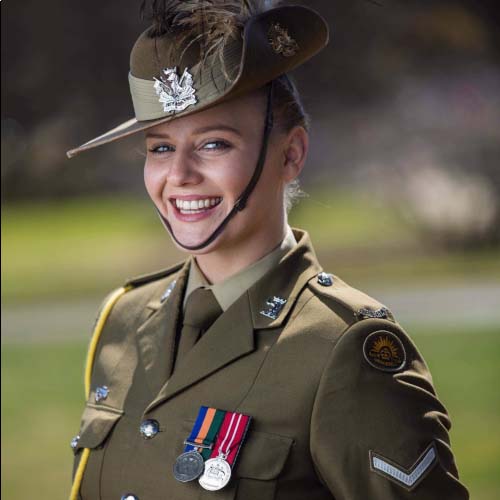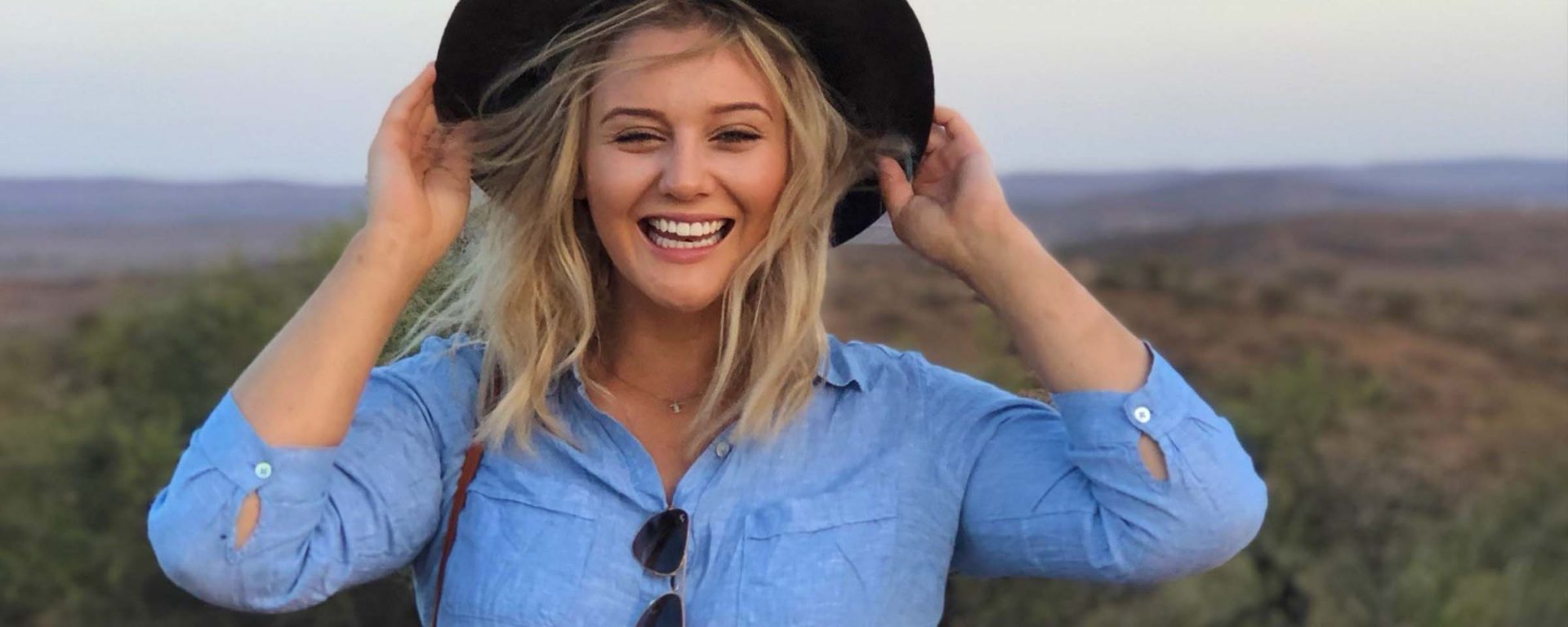Elizabeth Smith has travelled the country as a nurse, in the Army Reserve and as a performer. Now she has come to Orange, NSW, to embark on a medicine degree at Charles Sturt University – to help bridge the health gap for rural women and address healthcare disparities in Australia.
A circuitous route
Elizabeth grew up in the Blue Mountains, and her first degree was actually in theatre and performance.
As a 19-year-old, she joined the Army Reserve as a musician and has since helped to provide aid to remote communities in Far North Queensland and rural communities in NSW. She also worked with contact tracing teams and hotel quarantine security to assist with COVID-19 efforts.
“My experiences with the Army Reserve vary from singing the National Anthem at State of Origin, to assisting bushfire-stricken communities in Bega, to deploying with the Royal Australian Navy. I developed a lot of resilience and leadership skills.”
Making a change

Elizabeth visited rural and remote communities during her nursing placements and through her work with the Army Reserve. She gained first-hand knowledge of the healthcare disparities in Australia and the type of care still required in those areas.
“Many communities didn’t have doctors or nurses in town, they would just periodically fly in.
“Primary healthcare can make such a huge impact on a person’s life. It didn’t feel fair to me that there are thousands of Australians who are not afforded this right.”
Starting medicine
She met with doctors in the rural and remote areas who spoke about the relationships they had developed with their patients and community. She then knew this was the type of doctor she strived to be. So she decided to enrol in Charles Sturt’s medicine degree.
She had intended to practice nursing in Orange. So the fact that the medicine degree is also based at the Charles Sturt campus there was a stroke of luck.
“I love living in Orange and the sense of community I’ve found within my student cohort has been amazing. Charles Sturt also really cares about recognising their students and the lives they lead outside of medicine.”
Addressing the health gap
Elizabeth wants to address the inequities in women’s healthcare, especially in rural areas. It’s where teenage birth rates are high and pregnancy complications are increased.
She wants to work with schools to provide education and understanding on delicate health issues by building trust with patients.
“I have a passion for women’s health. Plus, women in rural communities often experience disadvantage and have a lack of access to specific care.
“I want to pursue a career in general practice or obstetrics or gynaecology. To bridge the health gap and empower more women and girls in the community.”
Elizabeth also has ideas on how to improve the health of First Nations women.
“I think we can learn from holistic models of health that encompass different initiatives. These could include community arts, theatre and community yarning.”
Want to help bridge the health gap?
Then Charles Sturt’s Doctor of Medicine is for you.



You must be logged in to post a comment.